Connecting to the land through conservation
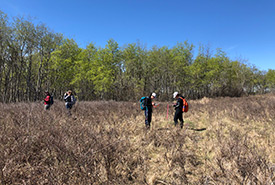
We spent the morning walking NCC’s Ursulan property. (Photo by NCC)
On my first field day with the Nature Conservancy of Canada (NCC), I was expecting a rigorous day of mapping, tracking and other GPS functions I don’t understand. Instead, I found myself birdwatching my way around a beautiful piece of NCC...
Bossing the burn: Part two
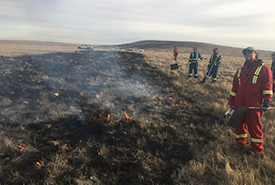
Morgan Kanak, Emily Little, Michael Burak, Dale Gross and Gabriel Foley admiring the black line we established using the tools of the trade, including flappers and a drip torch. (Photo by NCC)
This is part two of “Bossing the burn.” Click here to read part one. Have you heard the Tragically Hip song, “Lonely End of the Rink”? I’m pretty sure it is a love song that also describes the toughest position in...
Bossing the burn: Part one
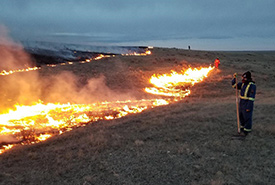
Prescribed burn at OMB (Photo by NCC)
Those of you who have met me know that I’m a pretty big, intimidating guy. Braggadocios, people have said. Bold, even. I mean, you know if you’ve seen me that I’ve got what you’d call a bit of swagger when I walk across the...
What do we save? How science and planning are evolving to help make critical conservation decisions
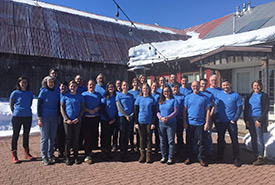
Participants of the Open Standards workshop led by the Conservation Coaches Network (Photo by NCC)
In a world that is rapidly losing wildlife and habitats, conservation has become a science of decision-making. We know there are many places and species in Canada that will not survive unless we take action to protect and restore them. Deciding...
Native grassland is important habitat for grassland birds
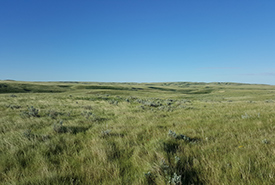
Native grassland (Photo by Sarah Ludlow/NCC staff)
Saying that native grassland is important habitat for grassland birds seems quite obvious. And you might think to yourself, “Of course grassland birds like grassland habitat; it’s right in the name!” The important point to note...
Restoration is super cool... literally!
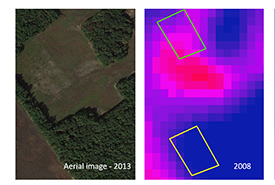
Left: An image of a restored field on an NCC property in 2013. Right: A thermal image of the same field taken in 2008. (Images by Google Earth and USGS Landsat 5)
Restoration of woodland begins with site preparation and seeding, but monitoring is needed after that to make sure the restoration stays on track for the next 40 plus years. This blog post explains the application of thermodynamic theory to the...
World Water Day: Why a burning river should give you hope
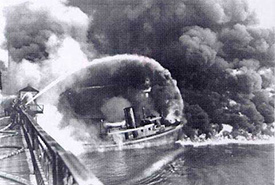
Cuyahoga River fire in June 1969 (Photo by USEPA Environmental-Protection-Agency)
There’s a picture of water I think about a lot. It’s not a loon on a misty lake. It’s not the classic Canadian image showing the back of a favourite paddling mate in the bow of a canoe. It’s a picture of a burning...
The challenge of beaver dams in Blanding's turtle habitat
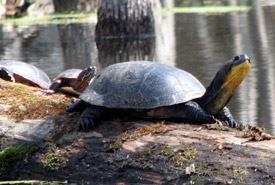
Blanding's Turtle (Photo by NCC)
The beaver and the turtle: it sounds like a Jean de LaFontaine fable, but for my colleague Milaine Saumur, the Nature Conservancy of Canada’s (NCC’s) project manager in the Outaouais, Quebec, it's a true story. A couple of months ago...
Installing a pond leveller for beavers
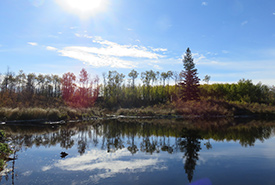
Wetland at the Kallal property, AB (Photo by NCC)
It was a crisp October morning and a thin layer of ice covered the surface of the wetlands as we drove out to the Kallal property. This site, located 40 minutes east of Edmonton in the Beaver Hills, was purchased by the Nature Conservancy of...
A cozy nest for a common gartersnake
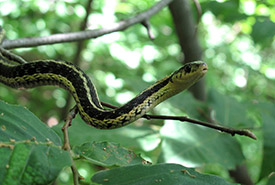
Common gartersnake (Photo by Hugo Tremblay-CERFO)
You won’t be surprised to hear that my fellow scientists spend a lot of time in the field in the spring and summer (for species inventories, invasive species control, property monitoring, etc.), but when the snow flies and temperatures drop...

